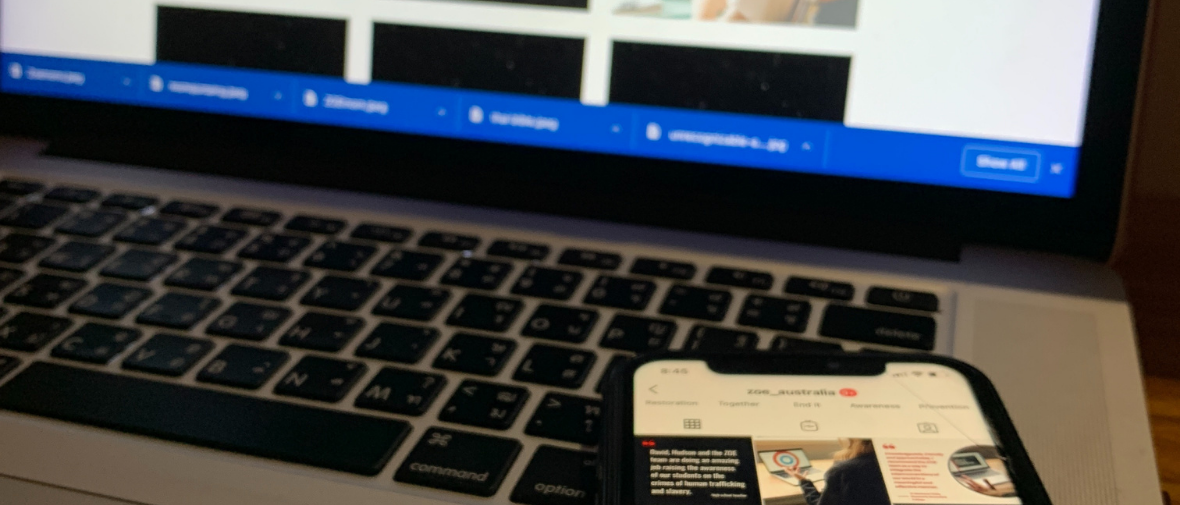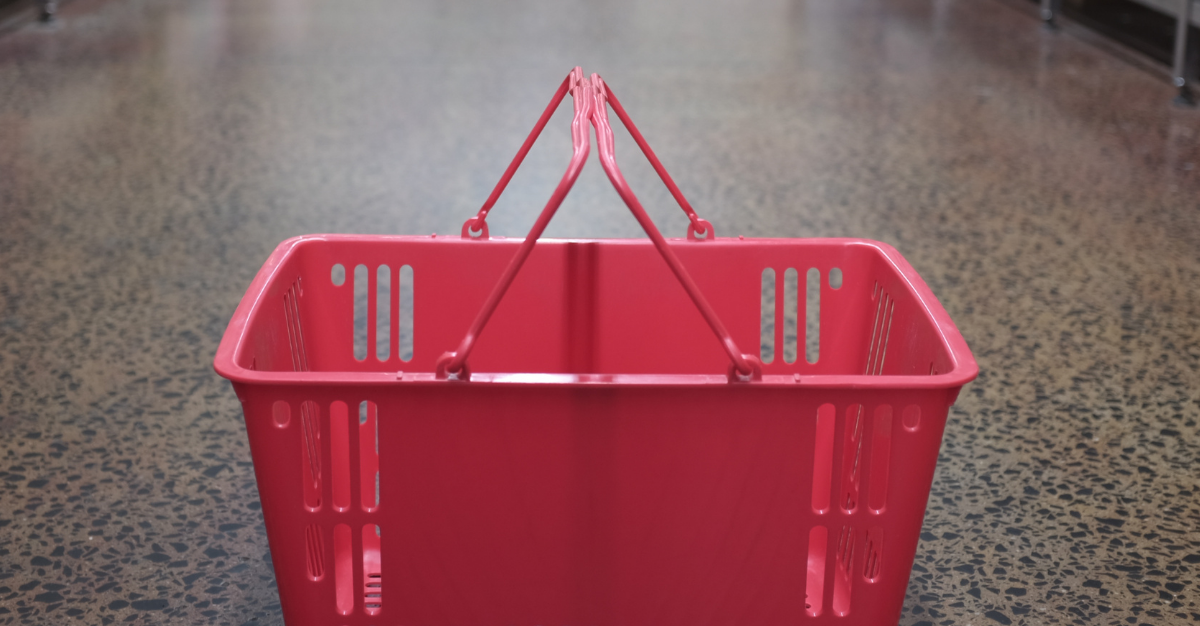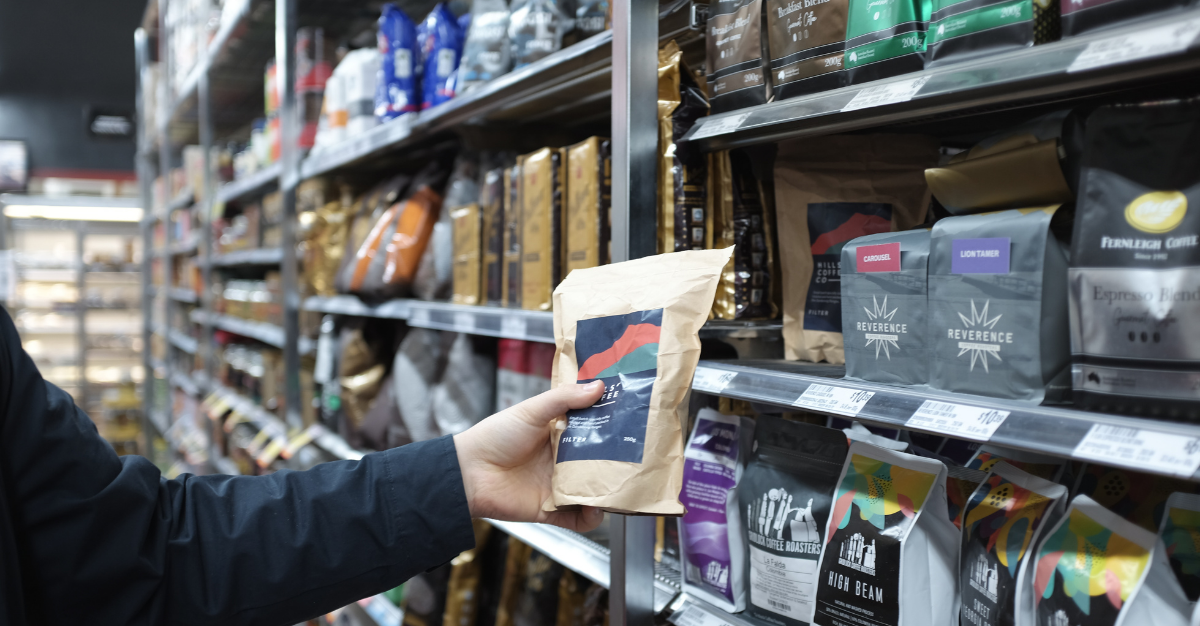… can be indicators that there's a problem.

Have you ever been in a situation where you’ve experienced a serious ‘pause’ about a situation, or a person? This is a red flag and it could be an indicator that there is something not right. As parents, and community members, we should take notice of ‘red flag’ moments, instead of just ignoring them, because sometimes these ‘little things’ add up to reveal a much bigger picture. Reporting red flag behaviour could be the very thing that protects a child from danger.
Let’s take a moment to talk about red flags in regard to child safety by looking at what ‘grooming’ behaviour might look like.

NOTE: Grooming can happen face to face, or online.
Recognising grooming behaviour is challenging. One of the difficulties, when it happens face to face, is that the groomer may actually be a well-known or well-liked person in the community. As a result, it’s easy for both the young person and the community, to trust them. “Even experts on the issue who have interviewed convicted child molesters remark on how ‘likable’ they appear.” (https://themamabeareffect.org/red-flags-of-child-predators)
And, the groomer’s social influence skills make the child feel like no one would believe them anyway if they were to report what was happening.
Take a read of this real-life story below that one of our ZOE team members experienced when she was younger. Thankfully she responded to the “red flags” as an indication that something wasn't right.
“When I was a teenager, I moved to a little town in regional Victoria. I started working at a small cafe and quickly began connecting with customers and with the wider community.
One customer who started coming in was an older man in his late sixties or early seventies - let’s call him “John”. He asked me about my story and how I came to move to this town and he quickly took a liking to me. I’ve always gotten on well with the elderly, and so I thought that this was totally innocent. In fact, his over-the-top and bubbly nature made me think of him as just a sweet and excitable old man, completely harmless. I actually thought to myself that he might have some mental illness.
John started frequenting the cafe.
He would chat to the other girls who worked at the cafe, but it was clear that I was his “favourite”. He would always read a newspaper in the cafe, and I remember him calling over one of the other girls to ask them if they thought that the photo of a young girl in the newspaper looked like me.
He began asking lots of questions. His behaviour and intrigue in me started to intensify.
Rather than coming into the cafe during peak times, he started showing up at the cafe right on close. I’d be stacking the chairs out the front of the cafe, and he would pull up in his car. I remember him jumping out of his car and quickly rushing to help me bring the tables and chairs indoors, despite me telling him that I could do my job by myself.
On another occasion, it was closing time and he was the last person left in the cafe. He came up to pay for his coffee and cake and then tried to give me some cash. He said it was to pay for my train ticket. I refused even though he was quite pushy about it.
I told my good friend, who used to work in the Australian Defence Force, about John and how he’d most recently started offering me money for the train.
My friend quickly understood that this was predatory behaviour and told me he thought that John was grooming me. At first, I came to John’s defence! He was just a quirky old man who wanted to help out the young, new girl in town.
But John’s behaviour continued to confirm my friend’s suspicions, and I started to feel targeted and unsafe. John would continue to show up at the cafe to compliment me and talk with me. He’d continue to come to the cafe right on close when our chef had already left and it was just him and I. He asked me if I wanted a ride home, which confirmed that his behaviour was not normal and unsafe. On this occasion, I took down his number plate.
I remember feeling scared when I was alone with him. I lived very close to the cafe, above a strip of shops, so I remember feeling worried that I would be an easy target to follow.
My friend decided that he wanted to see John in action, and wanted to make a point to John that I was not some isolated and vulnerable young woman, but that I had older friends who were looking out for me.
So, we agreed that the next time John showed up at the cafe, I would text my friend, and he would come over.
John came over one afternoon for cake and coffee. He was his usual extroverted, bubbly, and theatrical self. He gave me his usual attention, that is until my friend and his mate walked in the door and hugged me. John’s demeanour completely changed within an instant. When I saw him turn from an outgoing, almost unhinged personality, to a man completely still who would not look up from his newspaper or acknowledge me, I knew that he was not to be trusted. He quickly paid for his food with another waitress and left without even so much as a glance in my direction.
Two other instances stood out to me.
Once, on my day off, I was walking down the street when I realised that John and, who I assumed was his wife/partner, were walking in my direction. When we passed each other, John did not even look at me. How strange, I thought. If there was nothing sinister going on, John would have greeted me in the street and willingly introduced me to his partner. And yet he pretended that I was just a stranger walking past.
The next instance still sends chills down my spine. I lived in a unit above a strip of shops, where I entered my door from downstairs, which was backing onto a side street carpark. One day I headed outside and I stood still in my tracks. One of the distinguishing features of John is that he would wear a very heavy and strong cologne. It was pungent. Even after he’d left the cafe, I would still be able to smell it. It was always strong, and it was a scent that I had never smelt before. When I went outside my house that day, that same strong and unusual cologne scent was lingering around.
I’ll never know what John’s intentions were. However disturbing the experience was for me, I am thankful that I was able to learn a lot from it.
I learnt about grooming behaviour. John had identified me, and perceived me, as vulnerable. He tried to gather information about my personal circumstances. He identified what he thought could be my needs, like money for public transport, and tried to make me take his money. He’d try to do my jobs for me, and would even offer to drive me home. He would do these things when I was alone.
But John never got to exploit me because I had a friend who called it out for what it was and came to my side. If it wasn’t for my friend, I think the wool would have remained over my eyes for a lot longer. My experience says to me that as a community, we need to be more aware of what grooming behaviour looks like and we need to be able to call it out.”
How to spot it! Grooming behaviour might look like:
- Special attention, outings, and gifts
- Spending time alone with the child/young person to gain trust. More than 80% of sexual abuse cases occur in isolated, one-on-one situations (www.d2l.org)
- Isolating the child/young person from others
- Meeting the child/young person’s unmet needs
- Filling needs and roles within the family e.g. a father figure, homework help
- Gradually crossing physical boundaries, and becoming increasingly intimate/sexual
- Use of secrecy, blame, and threats to maintain control
- Sharing sexualised material
- Discussion of sexual topics, including telling dirty jokes (https://helpingsurvivors.org/grooming-warning-signs/)
**Just remember, “The goal of talking and being informed about these grooming behaviors is to strengthen your intuition and help you be on alert.” (https://defendinnocence.org)
Action:
This week (National Child Protection Week) is all about the ways that we can all work together to build communities that support children and families.
All adults can play a part by ‘tuning in’ to children in everyday situations about small worries; then they are much more likely to feel comfortable telling us if something big is wrong.
Talking with children about safety:
- Support children to identify trusted adults (both within the family and outside) they can talk to, if they are worried, upset, or don’t feel safe. Make sure these adults know they are on your child’s list.
- Remind children that they can talk to you or a trusted adult about anything, no matter how big or small their worry might be.
- Talk to children about how they know when they feel safe or unsafe. Help them to listen to their early warning signs (how their body feels), and to trust their feelings and instincts.
- Use everyday activities as opportunities for conversations (e.g. preparing meals and snacks, going for walks, playing, shopping). If children are used to having lots of communication, it can make it easier to talk when big or tricky issues come up.
- Be open to talking about all kinds of feelings, including anger, joy, frustration, fear and anxiety. This helps children to develop a ‘feelings vocabulary’.
National Child Protection Week is a great time to start conversations with children and families about feeling safe.
Source: https://www.napcan.org.au/articles-for-use-in-newsletters/
Further Reading:
https://themamabeareffect.org/red-flags-of-child-predators/
https://helpingsurvivors.org/grooming-warning-signs/
https://www.intechopen.com/chapters/77769 School Employee Sexual Misconduct: Red Flag Grooming Behaviors by Perpetrators
https://www.d2l.org/the-red-flags-of-grooming-behavior/
https://www.d2l.org/education/5-steps/
https://www.ywca.org/wp-content/uploads/WWV-CSA-Fact-Sheet-Final.pdf
https://www.youtube.com/channel/UCdC2_Ejij_BxbNkHhzatEAw/videos



